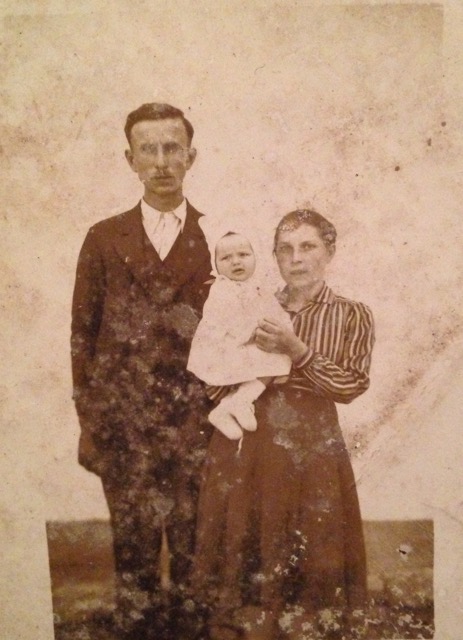
I was born in communist Hungary.
As a child, communism was amazing—school and healthcare were free and all activities, including camps and school dances, were free too. Things that cost money were artificially priced, carefully controlled and watched by “the system.” As long as we played according to the rules, stayed small and fit in, we were rewarded.
My mother was a sweet “small” person. For “small people,” communism is safe.
My father was a dreamer—a talented artist, with no limitation to his imagination. For people like him, communism is hell, so he left.
I remember going to the grade eight, starting to feel that strange pressure and fear of the predetermined future. What will they use me for? Which box do I fit in? We were all future miners, future railroad builders, future bookkeepers, future bread bakers—tested, sorted and guided by our noble patriot leaders.
And then suddenly, over the summer holiday, communism was gone.
My mother collapsed from the weight of the unknown. “Did you hear? We can lose our jobs any minute now! No more plans, no more future! Can you imagine? Where do we go for pension? Will I be fired next month?”
My father, who returned from “desertion” in Germany, into a free and democratic Hungary to finally fulfil his dreams, suddenly died.
When I first left Hungary I was 18.
I did it simply because I could, there was no more iron curtain. My best friend and I started hitchhiking and ended up in Holland where we stayed for the next three years.
Fast forward 20 years, I now live in Canada. How did I get here? I followed my heart, as always. I met a Canadian man during a long walk in Spain and married him. He is now married to someone else and I still live in Canada. My status is: Hungarian born Canadian citizen.
I have an accent and often get asked, “Where are you from?” Instead of going into detail about my history, I like to respond, “From planet Earth. And you?”
This article was inspired a few days ago when a friend of mine and I were walking in the woods. She is 20 years ahead of me on this very same journey of being an immigrant and still struggles with the exact same heartache as I do. When it comes to family, friends, “old country,” her new home, we share something that is bigger than us. I believe all immigrants do. While our initial reasons for leaving may have been different—war, curiosity, marriage, jobs—our sadness (maybe joys too) is shared. Does it have to stay this way? Will we always remain “stuck in between?”
Here are some of the things that make my heart heavy:
1.“It’s easier for you, you left.”
Any time I happen to share my joy of success, a peaceful afternoon in the park, a nice dinner, when I meet a nice person, visit a new place, learn something new… “Oh, you are so lucky, you left” is a response from back home.
You know, we can all do these things, wherever we are. No, it’s not easier for me to create daily moments of happiness. In fact, sometimes it’s a bit harder, because I miss you.
2. When we left, we became no-one.
Doctors, bookkeepers, housekeepers, teachers, poets, artists, parents, grandparents. We had an identity, a language, familiar surroundings to move through our daily life. While most of us chose to reinvent ourselves in the new country, it is not an easy task.
Every little bit of respect has to be earned. Every human right we take for granted back home is now a new task to build and deserve.
3. Cultural shock.
It takes a long time to become familiar with a new country’s language, people, grocery stores, school system, health care and financial system, taxes, customs, teatimes, dinner habits, work ethics. Be patient with us. We watched different cartoons growing up.
Funny story: In Canada, price tags do not include tax. One day, on my first week here, I walked into a store with 20 dollars cash in my pocket. The price tag of a mug said 19.90 dollars but lady behind the counter said 22,20 dollars. I probably looked totally confused so she explained about the different labelling system. Although she was kind, I still felt so embarrassed and ashamed about not having enough cash on me and not knowing what clearly everyone else in this country knew, I started crying.
4. Our own stay home families alienate us.
Let me ask you, fellow immigrants: How many of your family members who stayed at home call you regularly? Or come for a visit? It is expected of us to make all the effort. “You left. You want to see me? Come home.”
A relationship, any relationship requires two participants. Moms, dads, sisters and brothers: Call those who left, don’t wait for them to come home. Book your flight.
5. Making new friends is hard.
Superficial connections and acquaintance? Sure. But friendship is more than that. It’s the comfortable silence of doing nothing together, laughing about the same references without needing to explain, using the same silly words, dancing in the living room when our favourite song comes on the radio. Unless we all start to look behind our own social conditioning one day, these things are hard to find in a new crowd.
In this overpopulated world today, it takes a lot of effort to stay (or become) a good citizen of any country. Immigration has taught me to go deeper and see that underneath I’m only human. I have no country to defend or another to offend.
I live on Planet Earth, where in my mind, we are all immigrants. Ships on the ocean of destiny. Some of us are anchored at some places a little longer, that’s all.
What about you? What is in your heart? Have you left home or have you stayed? I’m interested to hear your thoughts.
~
Author: Orsi Foldesi
Image: Author’s own
Editor: Katarina Tavčar






Read 12 comments and reply